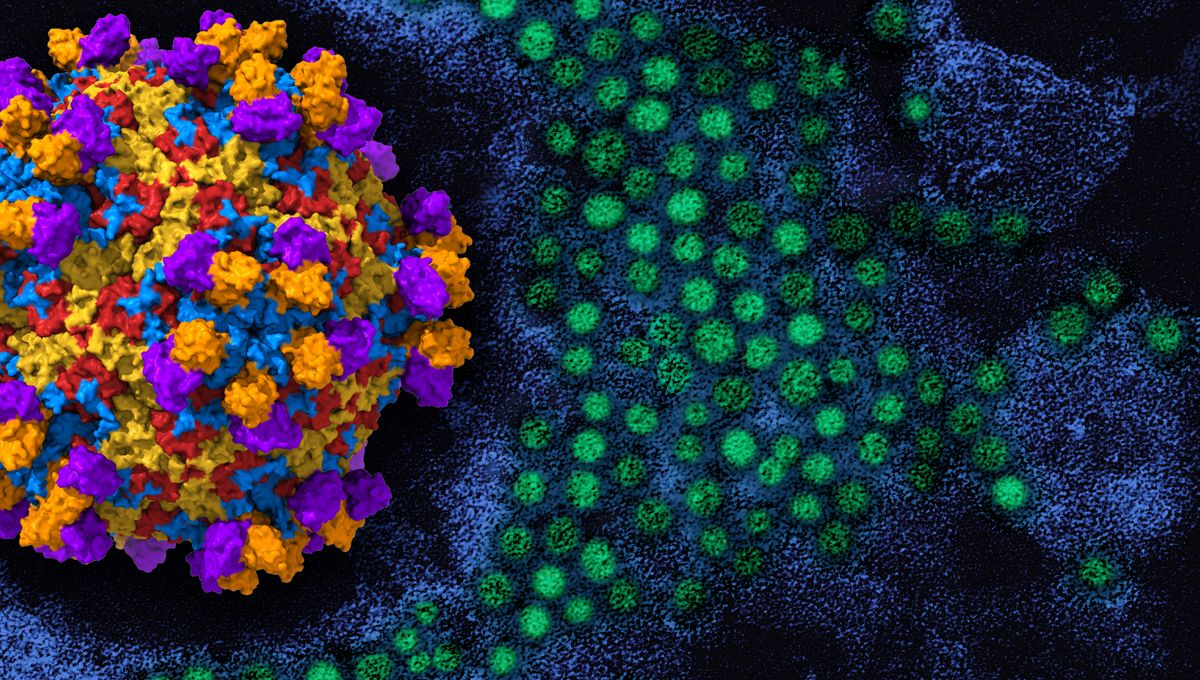
Pharma company Invivyd, Inc. just announced it is working with the US Food and Drug Administration (FDA) on a pathway to rapid approval for a product it calls an “alternative” to COVID-19 vaccines. The novel monoclonal antibody-based treatment, catchily named VYD2311 for now, offers a different way of preventing COVID infections compared with the existing vaccines.
What are monoclonal antibodies?
Monoclonal antibodies (mAbs) are proteins designed and made in a lab that mimic natural human antibodies produced by the immune system. Since science figured out that it was possible to make these in the mid-70s, we’ve really gone to town with them.
“The number of approved and marketed antibody therapies has reached 162 as of 30 June 2022, targeting a wide range of diseases including cancers, immune-related disease, infectious disease and hematological disease,” explains a 2022 paper.
Some of these you may well have heard of – if a drug name has the suffix “-mab”, that tells you it’s an antibody therapy. Examples that have garnered a lot of media attention recently include donanemab and lecanemab, both developed as treatments for Alzheimer’s disease. Last year, we also saw the approval of benralizumab to treat asthma attacks, the first such drug in 50 years. Adalimumab is another common example, used in the treatment of a range of autoimmune diseases like ankylosing spondylitis and Crohn’s disease.
mAbs have the potential to be used in infectious disease because they essentially replicate the body’s own defense system – if your immune system’s natural response to a pathogen is to make antibodies targeting it, it stands to reason that if we could produce and inject those antibodies at the first sign of disease, we could cut out the middleman.
However, as noted in a 2022 paper, “the development of therapeutic antibody agents to treat infectious diseases lags far behind that of those to treat cancer and autoimmune diseases.”
When it comes to viruses like SARS-CoV-2, which causes COVID-19, there are added layers of difficulty: “For viral infectious diseases, it is often impossible to formulate a strategy to develop antibody drugs unless the mechanism of infection for a virus and a host cell has been clarified.” mAbs are also time-consuming and costly to develop.
That’s why the announcement from Invivyd about VYD2311 is not an everyday event.
A “powerful alternative”
“We believe monoclonal antibodies such as VYD2311 can serve as a powerful alternative to vaccines for COVID-19 prevention, and represent an important potential paradigm shift to move American medicine beyond the real and perceived limitations of COVID-19 vaccines,” said the chairman of Invivyd’s board of directors, Marc Elia, in a statement.
The COVID-19 vaccines, principally those based on the Nobel-winning mRNA technology that are still in use today, have saved millions of lives, and represent a safe, effective strategy that allowed humanity to get the pandemic under control.
But pretty much since their development, they’ve come under attack, both from general vaccine skeptics and those who use misinformation to fearmonger about mRNA technology specifically.
Promoting evidence-based information about vaccines is a vital part of garnering public trust, which has been waning in recent years. A group of scientists and public health experts banded together earlier this year to do just that, forming the Vaccine Integrity Project to counter misinformation coming from the US government.
But in the meantime, we see the real consequences of vaccine hesitancy – just look at the measles outbreaks that swept large parts of the US this year.
“Amidst declining public trust in vaccines, we want to offer Americans a new, non-vaccine choice,” added Elia.
Invivyd have already completed an early human trial of VYD2311, which “demonstrated high SARS-CoV-2 antiviral titers and an attractive safety profile at very high doses, well beyond doses we contemplate going forward with in development,” said Mark Wingertzahn, Senior Vice President, Clinical Development at Invivyd.
The product works as a pre-exposure prophylaxis – the aim is to prevent COVID-19, just like a vaccine does, but in a different way. As Elia explained, it “works[s] alongside natural human immunity without needing to activate the immune system.” It’s administered via an injection into a muscle. Invivyd say their modeling suggests it should provide “robust, long-term protection from symptomatic COVID-19.”
In its development, Invivyd are building on the success of a similar product called pemivibart. This was authorized for emergency use by the FDA under the brand name Pemgarda® and can be given to people with immune suppression who are unlikely to respond well to traditional COVID vaccines. It’s administered via an IV infusion.
Importantly, Pemgarda is not authorized as a substitute for typical COVID vaccines in people whose medical history doesn’t prevent them from receiving one.
VYD2311 uses the same antibody backbone as Pemgarda, as well an investigational mAb that the company has already tested in phase 2/3 clinical trials. The FDA has advised that one more phase 2/3 placebo trial could therefore be enough to support an application for approval.
“[T]his alignment [with the FDA] is a critical step in bringing forward a potentially important, medically attractive and patient-friendly alternative to COVID vaccination, providing protective monoclonal antibodies, if approved, to any American who wishes protection, whether immune compromised, at high risk for severe disease, or just interested in not getting sick,” said Inivyd’s Vice President, Regulatory Affairs, Rachael Gerlach.
[H/T: CIDRAP]
Source Link: COVID-19 “Vaccine Alternative” Injection Could Be On Fast-Track To Approval From FDA